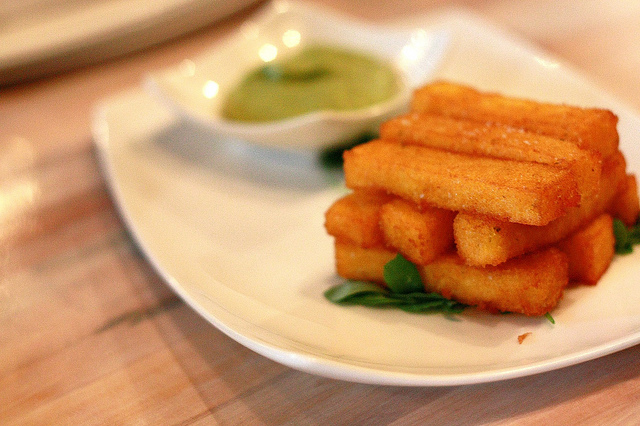As the new year approaches, we all can expect a barrage of quick fix advertisements which cater to the ever-growing percentage of Americans who hope to remedy their cellulite, stick to a fitness regimen, or make friends with vegetables. While I’m a huge proponent of living a healthy and compassionate lifestyle (I write for Peaceful Dumpling, after all), I’m always dubious of the health claims, especially regarding diet, that purport to be a cure-all when they are really nothing more than profit-driven scare tactics.
In this day and age, we’re constantly bombarded with cautions and faulty science that urge us to avoid sugar and eat fat, eschew gluten or carbs, or gorge on fruit and vegetables. And then we’re told the exact opposite. How is a consumer to make an informed decision when he or she is presented with contradictory and alarmist advice?
If there’s one thing you resolve to do for your health in the new year, let it be to liberate yourself from a constrictive approach to diet. These tips will provide a starting point.
1. Don’t self-diagnose.
For better or for worse, most of us have unrestricted access to the Internet, and thus can readily diagnose ourselves with anything from gluten-intolerance to a peanut allergy. However, without a formal medical diagnosis, you may be unnecessarily restricting your diet. If you suspect that you are reacting to a particular food or group of foods, it always best to consult with your doctor before making any major changes to your diet.
2. Listen to your body.
The thing about food alarmism is that it has not only a physical bearing, but a psychological one, too. If a particular diet is in vogue, we often overemphasize our symptoms to make way for what’s popular in the moment. Take a moment to truly listen to your body; examine whether your symptoms are imagined or real. How does the diet make you feel? Better? Worse? The same?
3. Identify any underlying food issues.
Often, the people who are most susceptible to food alarmism are those who have a complicated relationship with food. For example, the 80-10-10 diet, where unlimited quantities of fruit and carbohydrates comprise the majority of meals, has a certain attraction for me because of my history with food restriction. Others may be lured by gluten-free as a means of losing weight, because the diet is marketed as a weight loss measure, though there is little evidence that this correlation exists beyond those with Celiac disease or an actual gluten sensitivity.
4. Ignore the media.
Just as we might avoid magazines that tout impossible beauty standards, we can apply this same tactic when avoiding the current dietary zeitgeist. Accounts from women whose lives have been changed by paleo or fat-free can be very persuasive, even for individuals in good health. Remember that there is no universal diet, and what might work for some might not work for others. Don’t allow the media to force you to question what works for you.
5. Give yourself a break.
When we adopt a diet or eating regimen, we so often fall victim to the belief that it is the be-all-end-all. If we slip up, our body will deteriorate into a million pieces. If we eat a cookie with some sugar, our internal makeup is forever tainted. Demonizing particular foods is guaranteed to end in failure. Rather than regarding foods as “good” or “bad,” give yourself a break and understand that our bodies are a lot more resilient than we might think.
What do you think about food alarmism in our culture?
Related: How Intuitive Eating Changed My Life
Why You Should Never Feel Guilty About Food
Are We Required to Love Our Bodies?
__
Photo: Jennifer via Flickr





